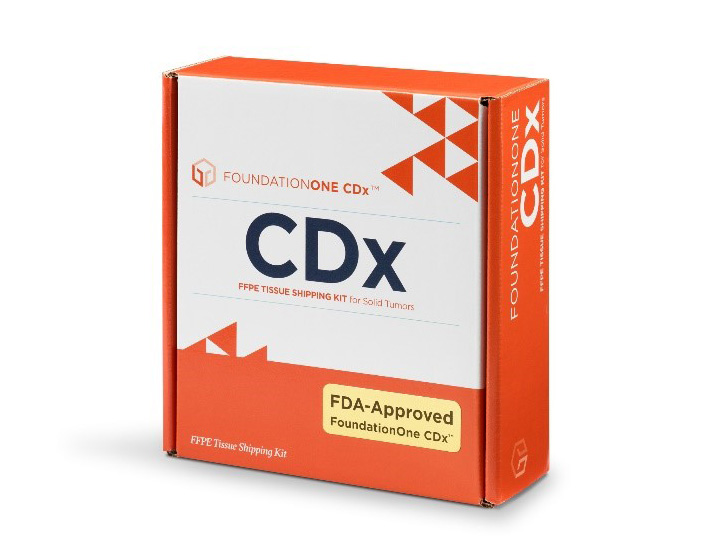FoundationOne CDx – P170019/S029
This is a brief overview of information related to FDA’s approval to market this product. See the links below to the Summary of Safety and Effectiveness Data (SSED) and product labeling for more complete information on this product, its indications for use, and the basis for FDA’s approval.
Product Name: FoundationOne CDx
PMA Applicant: Foundation Medicine, Inc.
Address: 150 Second Street, Cambridge, MA 02141
Approval Date: February 18, 2022
Approval Letter: Approval order
What is it?
FoundationOne CDx is a laboratory test designed to find genetic variations in 324 genes as well as some specific gene rearrangements and other biomarkers, including microsatellite instability (MSI), in the genomic makeup of a tumor. Microsatellite instability is a change or mutation that occurs in some cancer cells where a short, repeated sequence of DNA (microsatellite) in the cell does not repeat exactly the same way.
FoundationOne CDx is a companion diagnostic, or test used to help match a patient to a specific drug or therapy. It was originally approved to find genetic mutations in patients that help decide if they will benefit from one of 15 FDA-approved therapies for non-small cell lung cancer, melanoma, breast cancer, colorectal cancer, and ovarian cancer.
This approval expands the indications for use of the FoundationOne CDx test to include patients with solid tumor cells that have a high level of microsatellite instability (MSI-H status). Identifying tumors with MSI-H status may help doctors determine if a patient will benefit from treatment with KEYTRUDA (pembrolizumab).
How does it work?
The doctor orders the FoundationOne CDx test and takes a small amount of tissue from the patient’s solid tumor (biopsy). The tissue sample is sent to the laboratory for testing. At the laboratory, DNA is separated from the tumor cells and mixed with chemical substances, called reagents, that find and test the DNA sequences. The tumor’s sequenced DNA uses a calculated MSI score to determine if the MSI status is high. A trained medical professional reviews the results and sends a report to the patient’s doctor. The doctor uses this information to help manage the care of a patient with solid tumors.
When is it used?
Doctors use FoundationOne CDx to test the microsatellite instability of a patient’s solid tumor, to determine if the patient is eligible for a specific therapy to treat their cancer.
What will it accomplish?
The FoundationOne CDx help doctors identify if patients with solid tumors might be eligible to receive treatment with KEYTRUDA (pembrolizumab) based on their test results.
When should it not be used?
There are no known reasons not to use this test.


